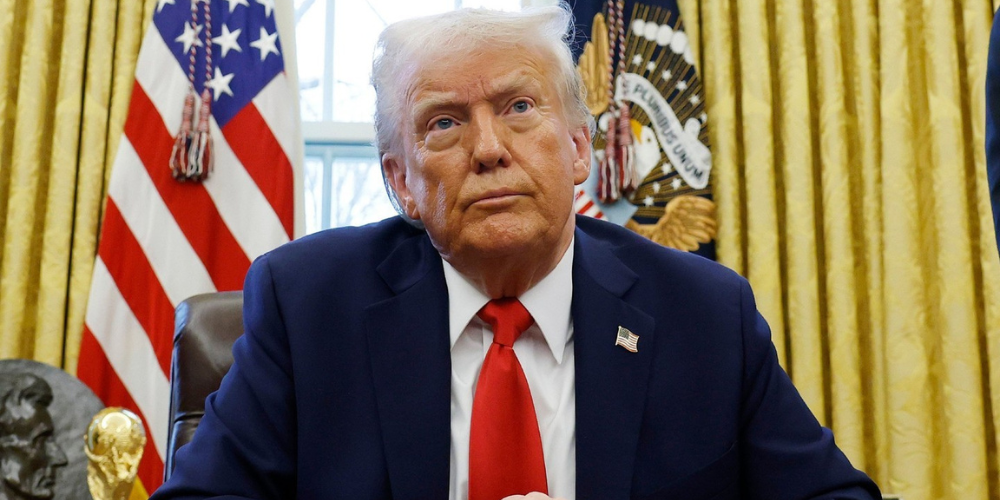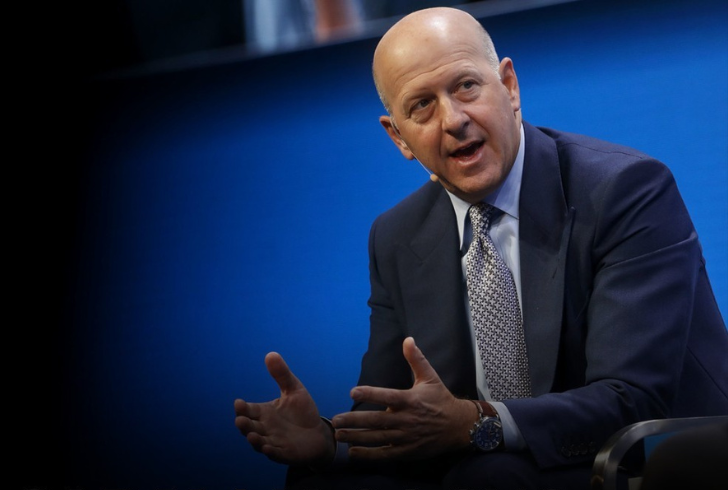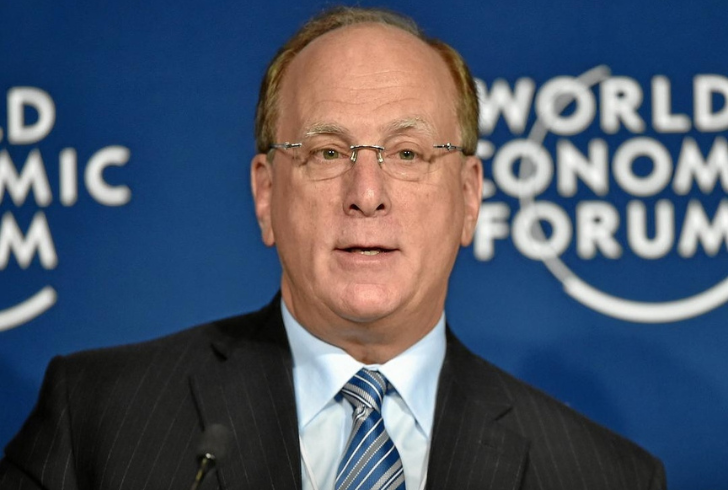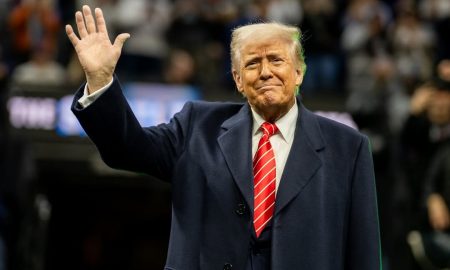
Why Wall Street Leaders Remain Optimistic Despite Trade Policy Challenges

Despite ongoing market fluctuations and new concerns surrounding President Trump’s policies, some of Wall Street’s most influential figures are keeping their cool. While many acknowledge growing unease about tariffs and the state of the economy, these financial leaders remain optimistic about the future of the market.
In recent discussions, prominent CEOs, including those from Blackstone, Goldman Sachs, and BlackRock, have shared their perspectives on the current business climate. Their outlook reflects a nuanced understanding of the challenges ahead while maintaining a cautious optimism about long-term growth.
Blackstone CEO Speaks on U.S. Manufacturing and Economic Growth
Steve Schwarzman, the CEO of Blackstone, recently addressed concerns over U.S. tariffs and their potential impact on global markets. He suggested that while these trade policies may cause temporary disruptions, they could ultimately lead to increased manufacturing within the United States, which he believes would be beneficial in the long run.
According to Schwarzman, “In the end, tariffs will likely result in more U.S. production, and that’s a good thing for the world economy, given the size of the U.S.”
Goldman Sachs CEO’s Take on Tariffs and Business Strategy

Instagram | sharecrypto | David Solomon indicated that business leaders understand the purpose of current tariffs, even as they prefer lower ones.
Goldman Sachs CEO David Solomon also weighed in on the situation. He expressed that while there is a desire for lower tariffs, the business community recognizes the broader objectives behind these policies. He explained, “The business community understands the president’s approach to tariffs, though we all would prefer lower tariffs globally. Despite the uncertainty, I believe this is part of a larger strategy to strengthen our economy.”
Despite the potential challenges, Solomon is not ready to hit the panic button. He still expects some business deals to go forward, even if the level of uncertainty has slowed things down a bit. “There is an increase in strategic thinking, and while some deals may be delayed, the overall level of dialogue is on the rise,” he said.
BlackRock CEO Remains Bullish on the U.S. Economy
Larry Fink, CEO of BlackRock, has been one of the most consistent voices of optimism on Wall Street. While acknowledging that some CEOs are feeling the effects of a weakening economy, Fink remains confident that the economic fundamentals will recover. He noted that private capital, once unlocked, could kick-start the next phase of growth. Fink stated, “If we can harness private investment, it will reignite the next bull market.”
Fink’s optimism extends beyond just private capital. He believes that while short-term economic slowdowns may happen, the long-term outlook remains strong. “The world economy will continue to grow over time. There may be bumps along the way, but overall, things will be fine,” he added. Fink’s reassuring words emphasize his belief in the resilience of both the U.S. economy and the global market.
The Ongoing Impact of Tariffs and Business Sentiment
While Wall Street remains relatively calm, the economic impact of tariffs is still a subject of debate. JPMorgan Chase CEO Jamie Dimon downplayed the immediate effects of tariffs on consumer sentiment, stating that the average American is unlikely to be significantly impacted by the current trade policies.
“The typical consumer isn’t going to change their daily routine based on news about tariffs,” Dimon remarked. However, he did acknowledge that the uncertainty created by these policies is concerning for businesses. “Uncertainty is never a good thing, especially when it comes to decision-making,” he said.
Dimon has long been vocal about his support for some of the Trump administration’s efforts to reduce government bureaucracy. While he has refrained from outright criticizing the administration’s trade policies, he recognizes the potential risks. “If tariffs increase significantly, it could have a much larger impact, potentially leading to inflation and even recession,” Dimon noted.
Market Pullbacks and Opportunities for Investors

Instagram | successaddictives | Fink believes market volatility presents buying opportunities, downplaying negative signals.
As markets fluctuate, some investors may feel uneasy about the future. However, Fink believes that these pullbacks should not be seen as a negative signal. He views market downturns as buying opportunities. “When the market dips, it’s often a good time to invest. I’m still incredibly bullish on the U.S. and its long-term prospects,” he said. This perspective resonates with many investors who view temporary setbacks as an inevitable part of the market cycle.
Fink’s positive stance is echoed by many in the financial world who believe that short-term challenges are just part of the broader economic landscape. With the right strategies in place, these obstacles can be overcome, leading to future growth.
Trump’s Policies and the Future of U.S. Business
Trump’s policies, including tax cuts and deregulation, have been credited with spurring growth in the early years of his presidency. While tariffs have sparked concerns about inflation and trade relations, the broader goal of strengthening U.S. business remains intact. Financial leaders are divided on the specifics of the tariffs, but they all agree that a strong U.S. economy is essential for global stability.
At a recent meeting with top executives, President Trump reinforced his commitment to his economic agenda. He suggested that tariffs would bring significant financial benefits to the country, a point that many CEOs are still evaluating. While opinions vary on the exact impact, it’s clear that Wall Street is paying close attention to how the administration’s policies evolve.
Wall Street Leaders Focused on Long-Term Growth
Despite the volatility surrounding President Trump’s policies, Wall Street executives remain largely confident about the future. While they acknowledge the challenges posed by tariffs and other uncertainties, their focus remains on long-term economic growth and resilience. With strategic investments and a clear vision, these financial leaders believe that the U.S. economy will continue to thrive, even in the face of short-term setbacks.
The evolving economic landscape presents both risks and opportunities. As top CEOs continue to navigate these challenges, their leadership will be critical in shaping the future of the U.S. economy. While uncertainties persist, Wall Street’s optimism signals a belief in the market’s strength and potential.
More in Business
-
`
Star Singer Nelly Furtado Wants Fans to Embrace ‘Body Neutrality’ in 2025
Singer Nelly Furtado is kicking off 2025 with a heartfelt message for her 1.5 million fans: embrace body neutrality. The Canadian...
January 25, 2025 -
`
Inside Zendaya and Tom Holland’s Secret Romance and Engagement
Zendaya and Tom Holland’s love story is one of Hollywood’s most heartwarming and low-key romances. Over the years, the couple has...
January 15, 2025 -
`
Top 5 Stable Blue-Chip Stocks You Should Consider Buying in 2025
Blue-chip stocks are the cornerstone of any serious investor’s portfolio. As we kick off 2025, it’s a perfect time to assess...
January 8, 2025 -
`
Bird Flu: What Is It & How Do People Catch the Viral Disease?
Bird flu is making headlines again, and with good reason. Officially known as avian influenza, this disease primarily affects birds but...
January 3, 2025 -
`
Four Seasons to Bring Luxury Resort & Residences to Deer Valley Ski Resort in Utah
The Four Seasons new hotel is making waves in Deer Valley’s highly anticipated East Village expansion. Known for setting the gold...
December 25, 2024 -
`
Who Is SZA Dating? The Singer Confesses Her Struggles With Love
Finding love can be tricky, even for someone as talented and successful as SZA. Known for her soulful lyrics and Grammy-winning...
December 17, 2024 -
`
Why Breathing in Wildfire Smoke Is Dangerous
Breathing in wildfire smoke is downright dangerous for your health. The tiny particles in the smoke can wreak havoc on your...
December 13, 2024 -
`
Is Your Mobile App Testing Tool Meeting Today’s Demands?
Mobile app testing plays a pivotal role in delivering a seamless user experience. With the growing competition in the app development...
December 12, 2024 -
`
How to Bring the Signature Almodóvar Aesthetic Into Your House
If you have ever been mesmerized by the vibrant interiors in Pedro Almodóvar’s films, you are not alone. The Almodóvar aesthetic...
December 4, 2024















You must be logged in to post a comment Login